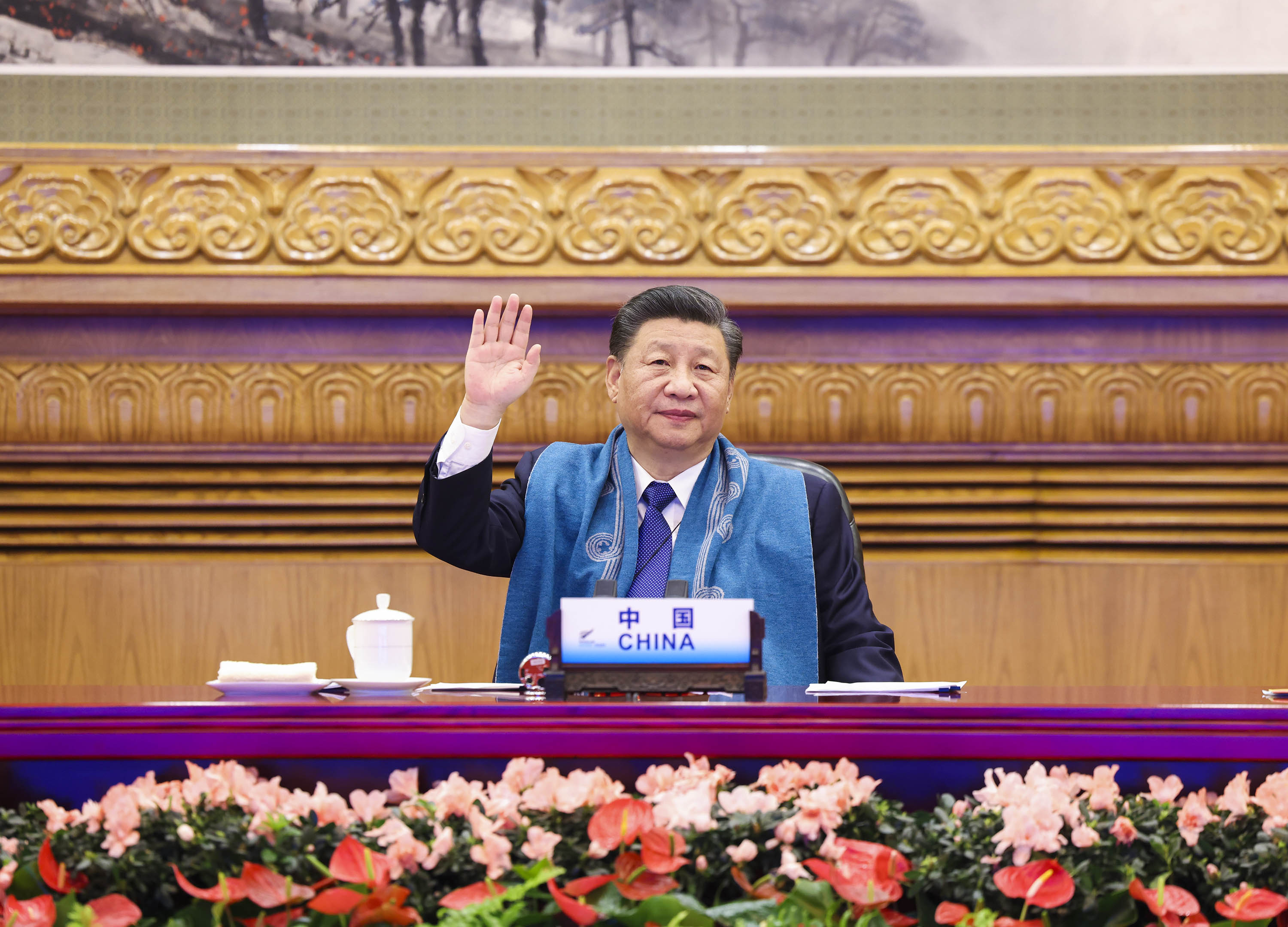Xi urges APEC openness, cooperation amid COVID-19 pandemic
 0 Comment(s)
0 Comment(s) Print
Print E-mail Xinhua, November 13, 2021
E-mail Xinhua, November 13, 2021

Chinese President Xi Jinping on Friday attended the 28th Asia-Pacific Economic Cooperation (APEC) Economic Leaders' Meeting in Beijing via video link, urging its members to build an Asia-Pacific community with a shared future featuring openness and inclusiveness, innovation-driven growth, greater connectivity, and mutually beneficial cooperation.
"China will work with all APEC members in building an Asia-Pacific community with a shared future and jointly opening a new chapter for Asia-Pacific economic cooperation," said Xi.
The 21 APEC member economies have reaffirmed their commitment to responding to the immediate crisis generated by the pandemic through urgent work, and to strengthening cooperation so that the region can return to growth in a way that is more innovative, inclusive and sustainable, according to a declaration adopted at the meeting.
PROMOTING ANTI-PANDEMIC COOPERATION
"We need to follow a science-based approach in pandemic response and deepen international cooperation," Xi said, pledging that China will continue to provide support to the Sub-Fund for APEC Cooperation on Combating COVID-19 and Economic Recovery.
Ruan Zongze, executive vice president of the China Institute of International Studies, said the Chinese side pointed out the importance and significance of cooperation in fighting against the pandemic, as greater solidarity and closer cooperation are the key to clinching the final victory in this life-and-death battle for APEC members.
"The COVID-19 pandemic was a stark reminder that all countries, whether rich or poor, share the same home planet, and no one can emerge unscathed from common challenges," Ruan added.
In the speech, Xi called on APEC members to promote the research, development, production and fair distribution of vaccines, ensure their accessibility and affordability in developing countries, and close the immunization gap.
So far, China has provided over 1.7 billion doses of vaccines to the world, including donations to more than 110 countries, and China has undertaken to offer three billion U.S. dollars over the next three years to support COVID-19 response and economic and social recovery in fellow developing countries.
Bambang Suryono, chairman of Indonesian think tank Asia Innovation Study Center, said that China's Sinovac and Sinopharm vaccines have played a crucial role in national vaccination programs in Indonesia and many other developing countries, and Indonesia appreciates China's support in making Indonesia the regional center for vaccine production.
CHAMPIONING OPENNESS
Calling openness "the lifeline of Asia-Pacific cooperation," Xi urged APEC members to uphold open regionalism, follow the guidance of the APEC Vision 2040 in advancing regional economic integration, and work for the early realization of a high-standard Free Trade Area of the Asia-Pacific (FTAAP).
"A more opened-up region is a more united one," said Suryono. Besides facilitating post-pandemic recovery, free trade is a win-win for all participants in the long run, and will serve as a catalyst for changes in the fields of business environment, social governance, the legal system, and so on, he added.
Xi reaffirmed China's resolve in safeguarding the multilateral trading regime with the World Trade Organization (WTO) at its core, and voiced support for the implementation of the Enhanced APEC Agenda for Structural Reform and the APEC Services Competitiveness Roadmap.
Xi also said China "looks forward to the entry into force of the Regional Comprehensive Economic Partnership (RCEP) on schedule next year."
While some developments in the global economy threaten multilateral institutions like the WTO, Peter Drysdale, head of the East Asian Bureau of Economic Research and the East Asia Forum at Australian National University, said that more openness and dialogue in a spirit of multilateralism will facilitate APEC as an ideal forum to develop strategies that will build the trust needed to overcome relevant problems.
PROMOTING INCLUSIVE, SUSTAINABLE DEVELOPMENT
"We need to fully implement the UN 2030 Agenda for Sustainable Development, and let the gains of development benefit more people across the world in a more equitable way," said Xi.
Noting economic and technical cooperation is an important area of APEC cooperation, Xi called on APEC members to step up input, make sure that developing members get real benefit from such cooperation, and keep injecting new dynamism into the development and prosperity of the Asia-Pacific.
Regarding China's dedication to advancing common development in APEC and beyond, a case in point is the Juncao technology. In 2001, the first China-aided Juncao technology demonstration base overseas was established in Papua New Guinea, and this technology has so far been promoted to more than 100 countries, bringing people better incomes and more employment opportunities while being ecological-friendly.
As for upholding innovation-driven development, Xi urged all members to implement the APEC Internet and Digital Economy Roadmap in a full and balanced manner, further develop the digital infrastructure, strive to bridge the digital divide, adding China "supports stronger international cooperation on the digital economy."
"The pandemic has given the trend of e-commerce, which was already happening, a real shot in the arm," said James Laurenceson, director of the Australia-China Relations Institute at the University of Technology Sydney, adding that China is by far a global leader in the e-commerce trend and China's position in the region is increasingly prominent.
Amid the pressing tasks of promoting recovery, China's proposals at the APEC have injected confidence into APEC and beyond for closer cooperation of a broader range and a larger scale in sustainable development, said Sun Jingxin, an associate research fellow with the Academy of Contemporary China and World Studies.






Go to Forum >>0 Comment(s)